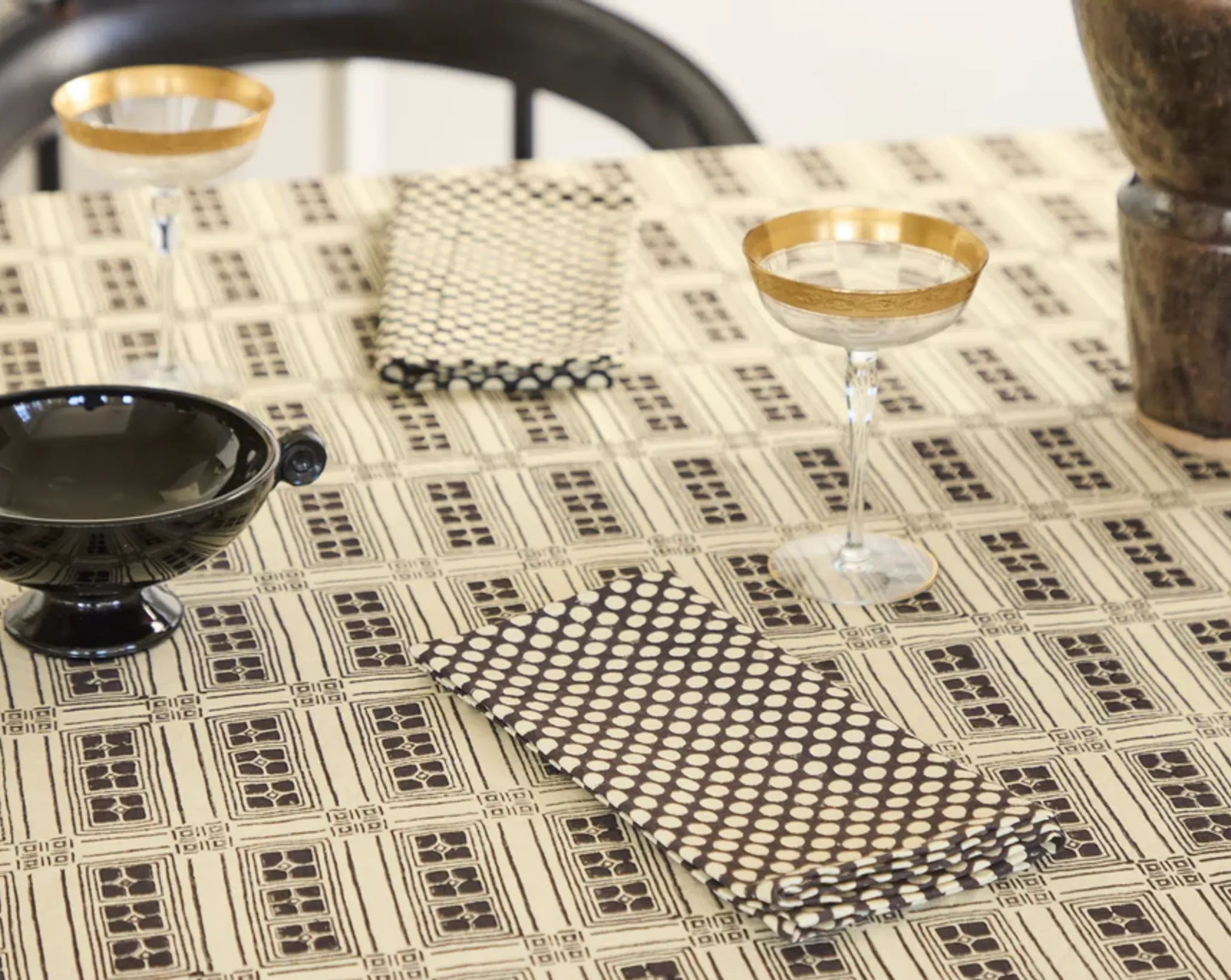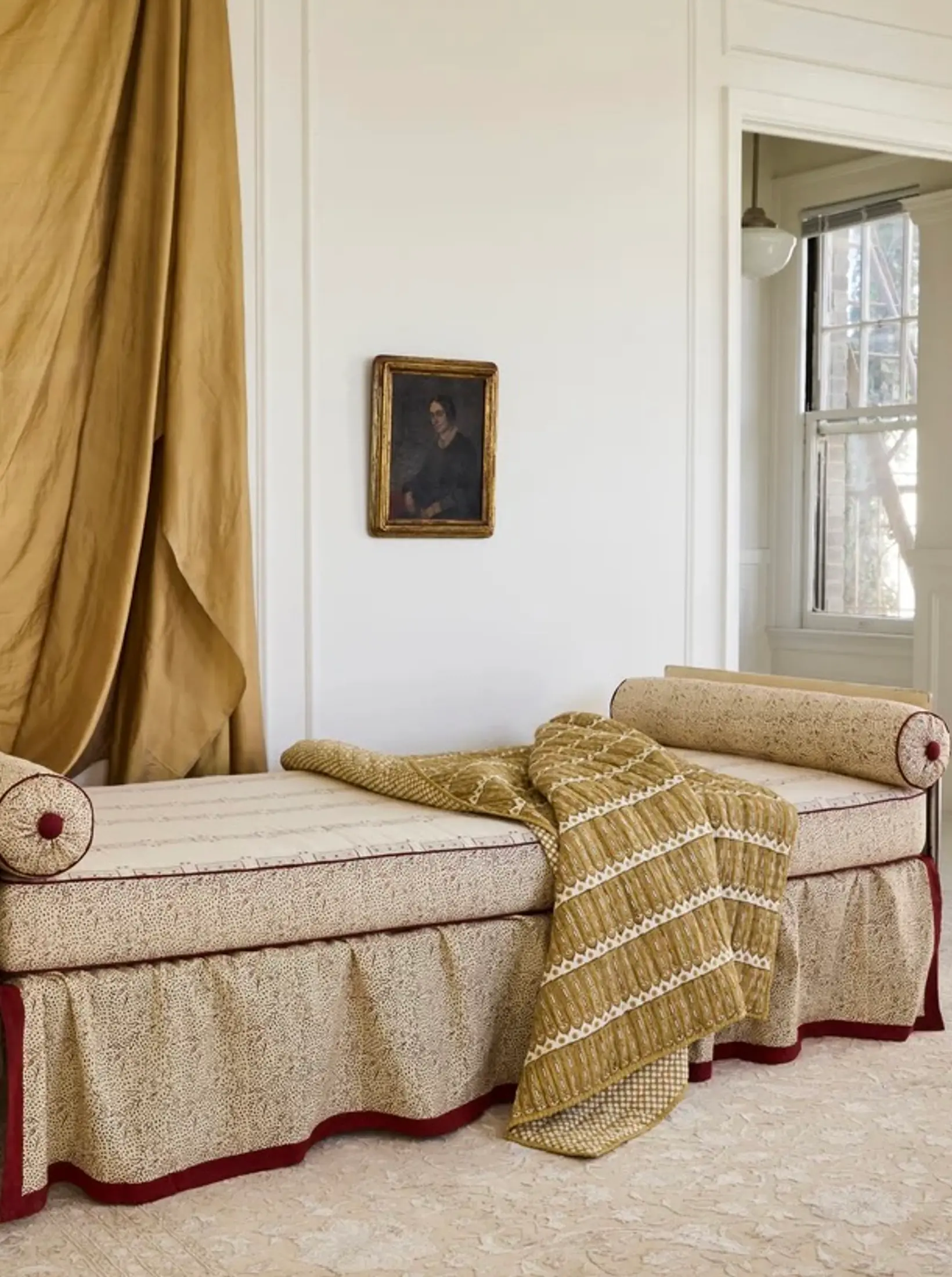
Details
- Maker•Studio Ford
- Medium•Fibre
- Origin•USA
- Composition•50% cotton / 50% linen
- Dimensions•508 x 508mm
- Care •Wash cold separately, lay flat to dry. Iron if needed.
Description
Consciously craft-forward, the production of these artisanal napkins is meticulous and stratified.
Each napkin is block-printed by hand on a cotton and linen blend textile. Sold individually to allow you to create a customised set, the Vesuvius napkin features striking cream and black tones, adding sculptural contrast and texture to your table setting.
The patterns in this collection blend a wide range of influences, from motifs of traditional Indian sarees, to the geometry of the Vienna Secession, to the ornamentation of Third Style Pompeii frescoes. The collection's name, Tesserae, symbolizes this idea, much like the small, intricate pieces of a mosaic, every influence from these block printed patterns and construction of each piece come together to create the whole.
Still considered an active volcano, Mt. Vesuvius sits watch over the city of Napoli. The Vesuvius print echoes the stone, ash, and eruptive potential of the historic site.
Shipping
Please refer to our shipping page for rates and delivery time frames.
- 【33】Studio Ford


Preserving the art of hand-block printing through timeless textiles.
STUDIO FORD is a Los Angeles-based textile atelier dedicated to preserving the heritage craft of Indian block printing. Founded in 2017 by Josie Ford—an art historian and printmaker—the studio brings a thoughtful, art-informed approach to contemporary textile design.
Rooted in botanical and geometric observation, Studio Ford’s patterns are designed in California and brought to life in close collaboration with skilled artisans in Jaipur, India. Each textile is hand-printed using traditional wood blocks and produced in small batches, reflecting a commitment to slow, intentional craftsmanship.
Timeless and tactile, every piece from Studio Ford carries the warmth of the hand and the spirit of cultural exchange—honouring both process and place.



